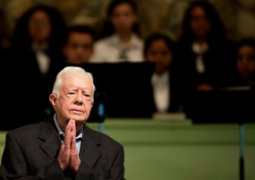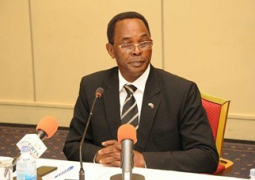This year marks the 60th anniversary of Gambia’s independence. As the country celebrates, and remembers heroes who fought for independence in 1965, it is important to reflect on the state of youth - the country’s hope for the future. In particular, government must do more to help the youth.
Youth make up the largest share of the Gambia’s population – about 60 percent of the country’s 2.8 million people are below 25. However, young people are among the most marginalized demographics, often left out of enhancement opportunities.
As Mandisa Masholugu, UNDP’s resident representative, remarked, for the Gambia, where 77 percent of the population under the age of 35 years, and median age is 18, there is need to increase efforts to harness the energy, creativity and resilience of our young people.
Without the influential role of the youth, it will be impossible to achieve country’s development goals. The country cannot sideline youth. That is why government must attend to the needs and concerns of young people.
Having a young population brings many opportunities for economic growth and development, if these opportunities can be recognized and utilized. Government must engage youth, create a space for them and give them a seat at the table.
Government must be deliberate about implementing initiatives that enhance youth empowerment and development – from education to leadership, facilitating access to skills and including young people in decision making processes in the country.
The Global Youth Development Index ranks the Gambia 125th out of 183 countries on its efforts. While there is encouraging progress from 2021 when the Gambia ranked 139th out of 181 countries, government must do more and enhance youth well-being and empowerment.
In particular, government should prioritise the need of young people and address challenges Gambian youth face especially high unemployment resulting from a struggling economy.
To reap the demographic dividend, government must empower the youth and implement country’s national youth policy (2019-2018), which aims to recognize as the single most important and valuable natural resource.
Noteworthy, national youth policy seek to empower and render the Gambian youth capable and willing to make well-informed, sustainable and meaningful life choices, through education, youth development investment and initiatives confront the country’s long tradition of emigration.
Government should create an environment that will enable youth to thrive. The youthful population could be an asset to a nation if the given necessary education and employable skills to participate in national development processes. Government must ensure that young people are empowered and armed with the necessary skills, knowledge and expertise to face the world of work.
Government must create meaningful employment opportunities for the youth. One way is to enhance and advance youth entrepreneurship employment sectors such as agriculture, fisheries, technology, innovation and other skilled based training to contribute to reducing the unemployment among young people.
But the task for youth empowerment and development cannot be solely government’s - It calls for partnership with various stakeholders to harness, that demographic dividend can, and indeed, already offering the country.
Also, it is important that youth are involved in decision making and recognised as equal partners and as right holders. Measures must be taken to give young people a greater voice in decision-making at all levels.
Mr Obonyo is a public policy analyst. Email: raphojuma@hotmail.com
Read Other Articles In Opinion
The state of the nation: Part 1
Aug 7, 2020, 1:23 PM



